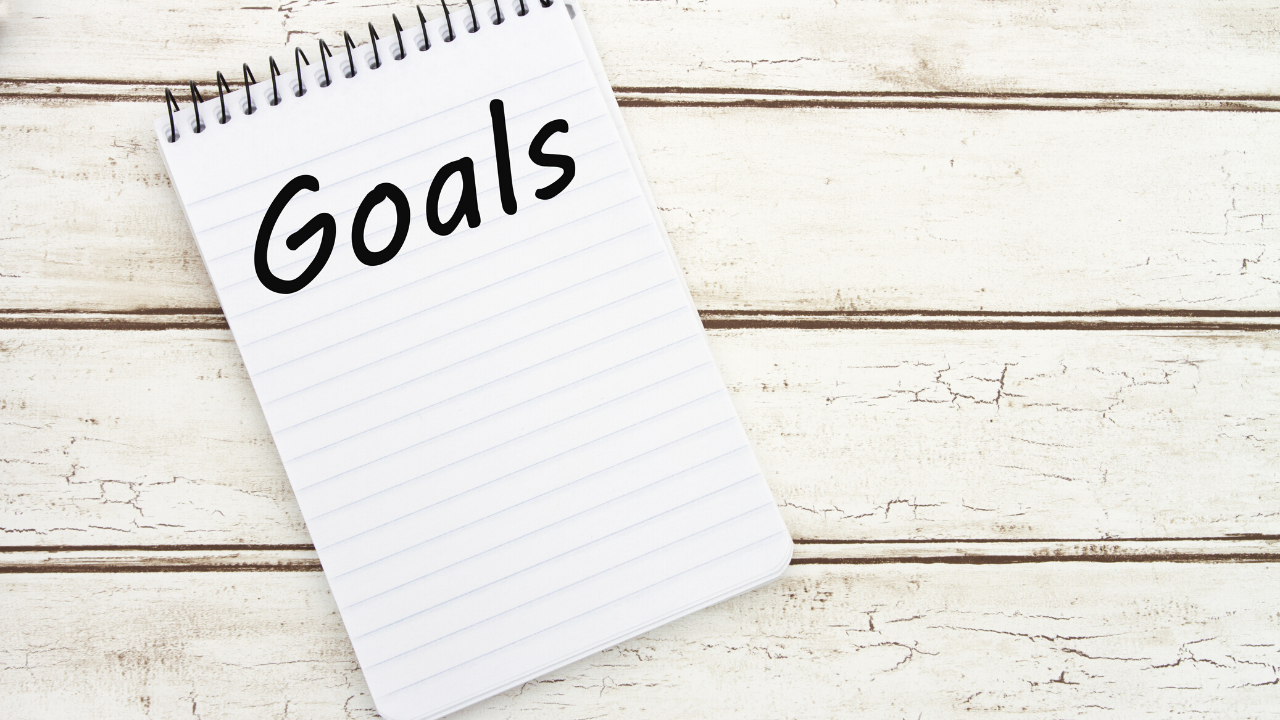Setting yourself up for success: setting goals and choosing an accountability partner

Do you struggle to follow through on things or focus on your goals?
It has been proven that successful people set goals and have a clear plan of action. Many books have been written about this, with case studies and evidence all backing it up.
It really boils down to basic human psychology. Without a focus, we’re not aiming for anything, which means we’re not motivated to get there. Some people summarise their goals onto 3 lines, print them out and stick them on a door or fridge to remind them of their focus.
Some people write daily goals, 90-day goals or annual goals.
The key thing is to find what works for you.
How do you set goals?
Start with your goals and your business plan. Make sure you go back to them regularly, review them, and set bigger goals before you start work on marketing your business. You will achieve much better results from your marketing efforts if you have a clearly defined business plan.
Many people set business and personal goals with a particular date in mind; e.g. “Move to Cornwall in 2023. Work less by 2020. Sell 100 courses by 2019. Earn X amount a year by 2019. Retire to Barbados in 2030.”
Goal-setting questions you should ask yourself:
- What’s your vision?
- Where do you see yourself in 10 years?
- What are your challenges (personal and professional)?
- How many hours do you want to work each week?
- What are your annual business targets? These could be anything depending on the type of business you have; e.g. courses sold, profit, sales numbers, new products launched, products sold, new clients etc.
- Can you list any potential opportunities?
- Are you at capacity or looking for more work?
- If you are at capacity are you happy with your income, or are you looking to increase it?
- What level do you want to reach in your career? Or what do you want to achieve?
- Is there any particular knowledge or experience you want to acquire?
- What skills and experience do you need to achieve these goals?
- How much do you want to earn and when do you want to achieve these earning milestones?
- Are your financial goals related to your career milestones? If so, how?
- What are your essential personal, career and financial goals for this year?
- What are your essential personal, career and financial goals for next year?
- What are your essential personal, career and financial goals for 5 years?
- What are your essential personal, career and financial goals for 10 years?
More goal setting tips:
Work out what success means to you and focus on how you can achieve that. Focus on what you do well and enjoy, and do more of it.
- Find your niche.
- Outsource what you don’t do well or don’t enjoy. This will free up your time to do more of what you love.
- If you’re not enjoying what you do, take steps to change that – life is short, and work takes up a lot of our time, so choose something you enjoy, and you are more likely to succeed at it.
- Visualise and plan for what you want to achieve. We are more likely to achieve what we wish if we actually plan for it.
Most importantly – no one says “I wish I’d worked more” on their deathbed, so make sure your goals encompass what you want personally as well as professionally.
Now you’ve set your goals, how can you motivate yourself to achieve them?
Getting a coach or an accountability partner? Or both?
There’s a rise in many freelancers and entrepreneurs taking on coaches to help them achieve their goals and to get clarity.
Getting a coach or mentor is one way to help you achieve your goals, another way is to get an accountability partner. We make better choices and perform better at a higher level when we know we are being watched by others. The reasoning is simple – when you are held accountable for your actions, you will work harder.
If you work from home, are an entrepreneur who has a remote team or you work alone, there is an even greater need for accountability. Everyone views the world differently because of their own experiences. That’s why having an accountability partner is proven to help you perform better.
How many times have you set a goal, started to work on it and then lost the momentum a few days later? From half-completed projects to that “extreme” exercise program, we’ve all had experience of losing motivation.
There are lots of reasons why we find it hard to stick to a new routine; one of the main reasons we don’t follow through is because we lack accountability. Sharing your goals forces you to finish projects by specific deadlines. Another significant benefit of responsibility is that you can share ideas and learn from each other.
When looking for an accountability partner, choose people who not only are encouraging but also challenging. This will keep you grounded. Their job is to help you achieve your short and long term goals.
If you’re feeling stuck, why not book a free call to find out more about my The Online Business Blueprint Programme and 1-2-1 coaching packages.
